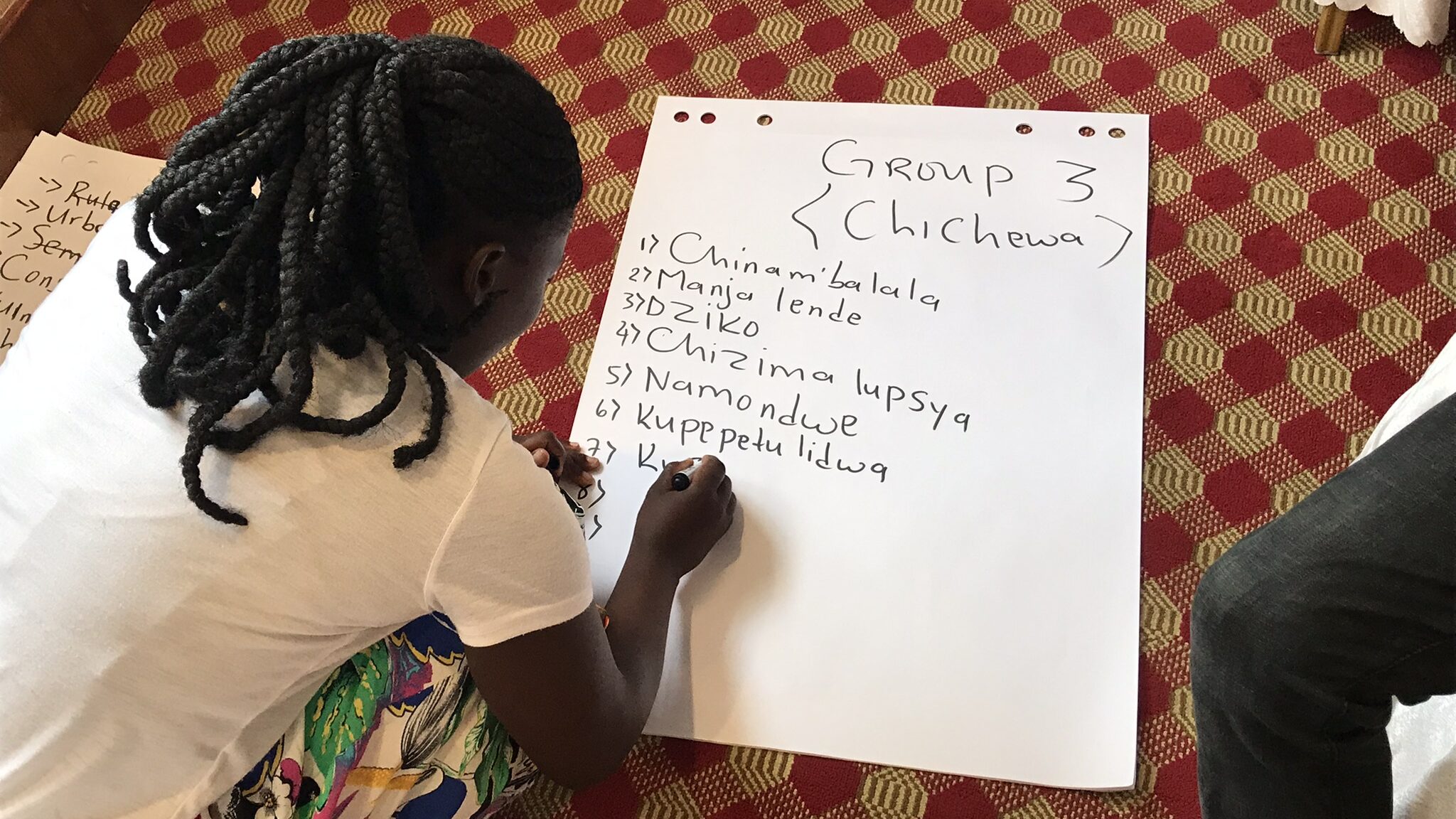
By Angela Crack
Good communication is key to the successful delivery of development projects. However, this can be difficult to achieve in multilingual environments when not everyone can speak fluently in the same tongue. Unfortunately, international development is still dominated by English jargon that cannot easily be translated into other languages. Translators Without Borders provide a much-valued service in providing free support for humanitarian field workers, but no equivalent exists for the development sector.
However, now there may be a solution to this problem thanks to an initiative called the Translation Glossary Project that stems from INTRAC-related research into languages and NGOs.
Translation Glossary Project is an initiative led by Dr Michael Chasukwa (University of Malawi) and Dr Angela Crack (University of Portsmouth). They have worked with local communities in Malawi to co-produce a Chichewa-English translation glossary of terms that are essential to international development work. The glossary contains hundreds of translations on topics such as climate change, governance and gender-based violence, dozens of which have not existed in print before. For example, Chichewa translations for terms such as resilience, sustainability, mainstreaming, and trafficking are not available in any commercially available dictionaries, but all of these and more are included in the glossary.
The remarkable thing is that the glossary was created by local people, with no professional experience in translation or interpretation. The idea behind the project was to create translations for terms in ways that made sense to the ‘ordinary’ person in the street.
Volunteers in Lilongwe and Zomba, Malawi, took part in an innovative participatory workshop to write an early draft, choosing the terms to be included and the simplest ways in which these could be translated. They chose not only to translate familiar English development jargon, but also Chichewa terms that are central to their vision of development. Their Chichewa-English translations reflect their unique knowledge of the local vernacular and the development priorities at the grassroots. It is the first comprehensive glossary in the international development sector that has been produced through participatory methods.
The glossary can be downloaded for free on the project website, along with a handbook designed for practitioners that explains how it was created, step-by-step. The intent is to encourage others in different contexts to create glossaries in different languages, and so empower stakeholders across the world to overcome language barriers.
…you don’t need to be a professional translator to run the participatory workshops, and nor do you need a lot of money.
Dr Angela Crack
The handbook explains that you don’t need to be a professional translator to run the participatory workshops, and nor do you need a lot of money. The process is designed to be as accessible as possible for practitioners with limited resources.
The idea for the Translation Glossary Projectemerged from a research project supported by INTRAC called The Listening Zones of NGOs, led by Professor Hilary Footitt, Dr Angela Crack, and Dr Wine Tesseur. Listening Zones revealed that many NGO workers cannot speak the languages of the communities that they work with. Translation problems often lead to a breakdown of trust between NGOs and the community, and the failure of development initiatives. Research participants suggested that their lives could be made easier by something simple. They wanted a handy translation glossary of development terminology to help NGOs and communities understand one another better.
The Translation Glossary Project has turned this idea into a reality. Hopefully it will be the first glossary of many, and promote good communication between stakeholders in Malawi and beyond.
Dr Angela Crack is a Reader (Associate Professor) in Civil Society at the University of Portsmouth, UK. She has published widely on issues of NGO accountability and language and translation in development work.